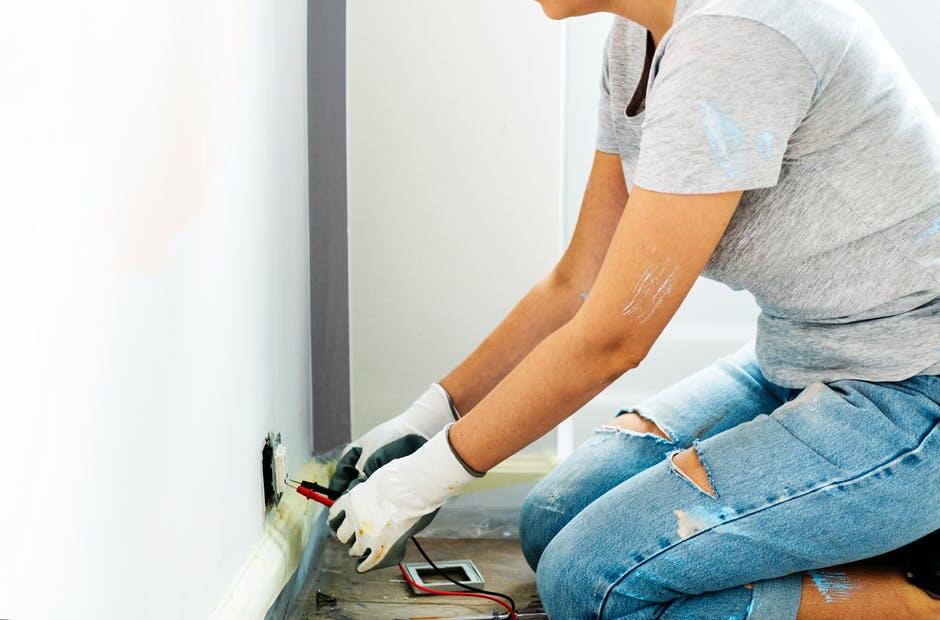Electrical failures or malfunctions are a major cause of home fires in the U.S. And bad electrical work poses serious risks, from fires to electrical shocks. So, what are the signs you should be looking for?
Join us as we look into seven shocking and dangerous examples of bad electrical work in Fort Myers, FL!
1. Faulty Wiring
Faulty wiring is a common issue in many homes. This problem often arises from using the wrong gauge wires or making improper connections.
When wires are too thin, they can overheat, which increases the risk of a fire. Loose or incorrect connections can cause sparks or short circuits, leading to electrical shocks or fires.
One of the main dangers of faulty wiring is that it often goes unnoticed until something goes wrong. Signs of wiring problems include flickering lights, warm outlets, and frequent circuit breaker trips. These issues should not be ignored, as they indicate potential hazards.
2. Overloaded Circuits
Among the more common electrical mistakes are overloaded circuits. This occurs when too many devices are connected to a single circuit, drawing more power than it can handle. As a result, circuit breakers trip frequently, or worse, wires can overheat and cause a fire.
One common sign of an overloaded circuit is the constant tripping of breakers. If you notice this happening often, it’s a warning that your electrical system is under too much stress.
Another sign is dimming lights when you turn on appliances. This indicates that the circuit is struggling to supply enough power to all the connected devices.
To avoid overloaded circuits, spread out the use of electrical devices across multiple circuits. Avoid plugging too many high-wattage appliances into the same outlet.
3. Improper Grounding
Improper grounding is a serious issue that can lead to significant electrical hazards. Grounding ensures that any stray electricity is safely directed into the ground, preventing electrical shocks and fires. When grounding is done incorrectly, it leaves the electrical system vulnerable to dangerous faults.
Common mistakes in grounding include failing to ground outlets properly or using incorrect techniques. Sometimes, people may cut corners by not grounding all the necessary parts of the system. This can create a hidden danger, as the system may appear to work fine until a fault occurs.
Signs of improper grounding can include tingling sensations when touching appliances, frequent electrical shocks, or buzzing noises from outlets. If you experience any of these, it’s important to have your system inspected by a licensed electrician. They can identify grounding issues and make the necessary corrections to ensure safety.
4. DIY Electrical Repairs
DIY electrical repairs can be tempting for many homeowners. The idea of saving money and fixing problems yourself seems appealing. However, this often leads to dangerous outcomes. Unlicensed and unqualified individuals performing electrical work can create serious hazards.
One common issue with DIY repairs is incorrect installation. This can include improper connections, using the wrong materials, or bypassing safety devices.
These mistakes can cause electrical shocks, fires, and damage to appliances. Even if the repairs seem to work, initially, hidden problems can emerge later, leading to more significant issues.
Another risk is the lack of understanding of electrical codes and standards. Licensed electricians follow strict guidelines to ensure safety and compliance with local regulations. DIY repairs often ignore these rules, increasing the risk of accidents and failing to pass a home electrical inspection.
5. Outdated Electrical Panels
Outdated electrical panels can pose serious risks in your home. These panels may not handle the electrical demands of modern appliances and devices. As homes get older, their electrical systems may struggle to keep up with current technology.
One major issue with old panels is their limited capacity. Many older panels were designed for homes with fewer electrical needs.
Today, with the increase in electronic devices and high-power appliances, these panels can easily become overloaded. This can lead to frequent tripping of circuit breakers or, in worse cases, electrical fires.
Outdated panels can also have worn-out components that are less reliable and safe. Over time, circuit breakers and wiring can degrade, increasing the risk of malfunctions.
6. Inadequate Lighting Installations
Inadequate lighting installations can cause significant problems in a home. Poorly installed lighting fixtures often lead to electrical hazards. Common issues include using incorrect wiring, insufficient support for fixtures, and improper connections.
When lighting fixtures are not installed correctly, they can pose a risk of electrical shorts. This happens when wires touch each other, creating a dangerous situation that can lead to sparks or fires. Another common issue is the use of inappropriate materials, which may not be able to handle the electrical load required by the fixture.
Signs of inadequate lighting installations include flickering lights, buzzing sounds, and fixtures that feel warm to the touch. These symptoms indicate potential wiring problems that need immediate attention. It’s important to have a licensed electrician inspect and correct any issues with your lighting installations.
Proper installation of lighting fixtures involves ensuring that they are securely mounted and correctly wired.
7. Unsafe Extension Cord Use
Unsafe extension cord use is a common issue that can lead to serious electrical hazards. Many people rely on extension cords for temporary power solutions, but misuse can create dangerous situations.
Overloading extension cords by plugging in too many devices can cause them to overheat. This overheating can lead to electrical fires, which pose a significant risk to your home.
Another problem is using extension cords as a permanent solution instead of addressing the underlying need for more outlets. Extension cords are designed for temporary use and should not replace proper wiring. Using them long-term can wear them out quickly, increasing the risk of electrical faults.
Signs of unsafe extension cord use include cords that are warm to the touch, frayed or damaged insulation, and plugs that fit loosely in outlets.
Bad Electrical Work
Bad electrical work can lead to serious hazards like fires and shocks. By recognizing common issues and taking preventive measures, you can keep your home safe.
At Mabry Brothers, we bring a wealth of experience to every project. Since 1995, we’ve been helping our clients in the Fort Myers area with our mastery of electrical systems and HVAC solutions. We offer 24/7 emergency services and free estimates.
Get in touch today to find out how we can help you!


